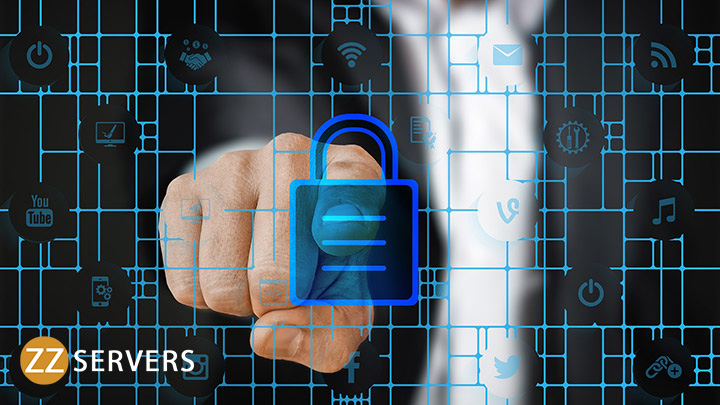In today’s digital landscape, the importance of data center security cannot be overstated. As organizations increasingly rely on data centers to store and manage their critical information, ensuring this data’s confidentiality, integrity, and availability has become paramount.
From safeguarding against external threats to implementing robust access controls, data center security measures are designed to protect sensitive information and maintain operational continuity.
This article explores the fundamentals of data center security, providing insights for those seeking to establish a secure and resilient infrastructure.
What Is a Data Center?
A data center is a physical facility that organizations use to house their critical applications and data. It is a centralized location where businesses store and manage their valuable assets. The data center’s primary purpose is to provide a secure and controlled environment for the organization’s infrastructure, networks, and information.
Physical security is a crucial aspect of data center operations. It involves implementing measures to protect the facility from unauthorized access, theft, and physical damage. Security measures may include surveillance systems, access controls, and security personnel.
Data centers also employ various measures to ensure the protection and availability of their assets. These measures include redundant power and cooling systems to maintain optimal operating conditions, fire suppression systems to prevent and extinguish fires, and backup generators to provide uninterrupted power supply during outages.
Data centers address vulnerabilities through the implementation of robust security protocols. This includes regularly monitoring and auditing systems, implementing strict access controls, and employing encryption techniques to safeguard data in transit and at rest.
Who Needs Data Center Security?
Data center security is essential for any organization that relies on a data center to protect its valuable assets and ensure its stored information’s confidentiality, integrity, and availability. In today’s digital age, where most businesses have transitioned from paper to digital, the need for robust data center security measures has become even more critical.
Regardless of size or industry, all businesses need data center security. Whether it’s a small startup or a multinational corporation, securing data center infrastructure cannot be overstated. Organizations face security threats, such as unauthorized access, data breaches, and physical theft, which can severely affect their operations and reputation.
Organizations must implement physical security measures, such as access controls, surveillance cameras, and security personnel, to address these risks to protect their data center facilities. Additionally, they must establish security policies and standards that govern the handling and storage of sensitive information. Virtual security measures like firewalls and encryption are crucial to safeguarding data from cyber threats.

Needs in Data Center Security
To effectively address the security concerns of a data center, there is a necessity for a comprehensive approach that takes into account the evolving threat landscape and the unique requirements of the organization’s infrastructure.
Data center security must encompass various security measures to protect against data breaches and ensure sensitive information’s confidentiality, authentication, and access control.
One of the critical needs in data center security is the protection of both the physical infrastructure and the network infrastructure. Physical security measures such as surveillance cameras, access control systems, and biometric authentication help prevent unauthorized access to the data center premises. On the other hand, network security measures include firewalls, intrusion detection systems, and encryption protocols to safeguard the network infrastructure from external threats.
Another crucial need in data center security is detecting and preventing data breaches. This includes implementing robust security policies and procedures, conducting regular vulnerability assessments and penetration testing, and monitoring network traffic for any suspicious activities. Additionally, organizations should prioritize the implementation of strong authentication mechanisms, such as multi-factor authentication, to ensure that only authorized individuals can access the data center resources.
Data Center Tiers and Levels of Security
The classification of data centers into tiers based on complexity directly correlates to the levels of security required. As a data center’s complexity and fault tolerance increase, so does the need for enhanced security measures to protect against data breaches, data theft, and other cybersecurity threats.
Here are the levels of security associated with each data center tier:
Tier 1
- Basic site infrastructure with limited protection from physical events.
- Single-capacity components and a single, nonredundant distribution path.
- Basic security measures may include firewalls and malware detection.
Tier 2
- Redundant-capacity component site infrastructure offers better protection from physical events.
- Includes redundant capacity components and a single, nonredundant distribution path.
- Additional security measures may include intrusion detection systems and regular vulnerability assessments.
Tier 3
- Concurrently maintainable site infrastructure protecting against almost all physical events.
- Independent distribution paths and redundant-capacity components.
- Advanced security measures may include multi-factor authentication, encryption, and continuous monitoring.
Tier 4
- Fault-tolerant site infrastructure provides the highest level of fault tolerance and redundancy.
- Various independent distribution paths and redundant-capacity components.
- Comprehensive security measures may include advanced threat detection systems, physical access controls, and strict data segregation.
These levels of security ensure that the data housed in the data center remains secure and protected from unauthorized access, minimizing the risk of data breaches and data theft.
Contact ZZ Servers Now for Data Center Security
Organizations can rely on ZZ Servers, a leading cybersecurity services provider based in Virginia, for comprehensive data center security solutions. ZZ Servers has over 17 years of experience in the Information Technology and Cybersecurity sector, making them a trusted choice for businesses looking to protect their data centers. With a focus on delivering predictable documented results, process, trust, and accountability, ZZ Servers offers a range of services tailored to meet the unique security needs of each organization.
To learn more about ZZ Servers’ data center security services or to discuss specific security requirements for your organization, contact them at 800-796-3574. Their experienced team will be happy to comprehensively assess your data center security needs and recommend tailored solutions to enhance your organization’s overall security posture.
Don’t wait until it’s too late; contact ZZ Servers today for reliable and effective data center security solutions.

Conclusion
In conclusion, data center security is crucial for protecting valuable information and ensuring the smooth functioning of organizations that rely on data storage and processing.
Like a sturdy lock safeguards your home, data center security measures are a strong shield against unauthorized access and potential threats.
Implementing robust security protocols is like building a solid fortress, ensuring the safety and integrity of sensitive data within a data center.
Frequently Asked Questions
u003cstrongu003eWhat Are the Common Types of Physical Security Measures Implemented in Data Centers?u003c/strongu003e
Common physical security measures implemented in data centers include access control systems, video surveillance, perimeter fencing, security guards, biometric authentication, and intrusion detection systems. These measures are essential for protecting sensitive information and ensuring the integrity of the data center environment.
u003cstrongu003eHow Are Data Center Security Breaches Typically Detected and Mitigated?u003c/strongu003e
Data center security breaches are typically detected and mitigated through advanced monitoring systems, intrusion detection and prevention technologies, regular security audits, and incident response protocols.
u003cstrongu003eWhat Are the Key Differences Between Tier 1 and Tier 4 Data Centers in Terms of Security?u003c/strongu003e
The key differences between tier 1 and tier 4 data centers in terms of security are based on the redundancy level, backup power availability, and the ability to withstand and recover from various types of threats and disruptions.


